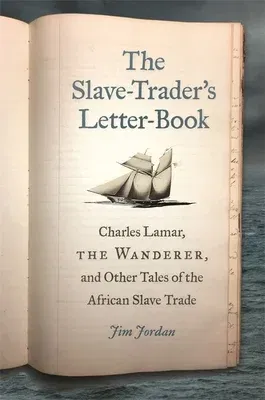In 1858 Savannah businessman Charles Lamar, in violation of U.S. law,
organized the shipment of hundreds of Africans on the luxury yacht
Wanderer to Jekyll Island, Georgia. The four hundred survivors of the
Middle Passage were sold into bondage. This was the first successful
documented slave landing in the United States in about four decades and
shocked a nation already on the path to civil war.
In 1886 the North American Review published excerpts from thirty of
Lamar's letters from the 1850s, reportedly taken from his letter book,
which describe his criminal activities. However, the authenticity of the
letters was in doubt until very recently. In 2009, researcher Jim Jordan
found a cache of private papers belonging to Charles Lamar's father,
stored for decades in an attic in New Jersey. Among the documents was
Charles Lamar's letter book, confirming him as the author. The Lamar
documents, including the Slave-Trader's Letter Book, are now at the
Georgia Historical Society and are available for research.
This book has two parts. The first recounts the flamboyant and reckless
life of Lamar himself, including Lamar's involvement in southern
secession, the slave trade, and a plot to overthrow the government of
Cuba. A portrait emerges at odds with Lamar's previous image as a savvy
entrepreneur and principled rebel. Instead, we see a man who was often
broke and whose volatility sabotaged him at every turn. His involvement
in the slave trade was driven more by financial desperation than
southern defiance. The second part presents the "Slave-Trader's
Letter-Book." Together with annotations, these seventy long-lost letters
shed light on the lead-up to the Civil War from the remarkable
perspective of a troubled, and troubling, figure.

